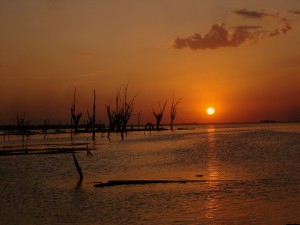Contaminated Argentine wetland poses threat to humans and migrating birds
A recent study published in Science of the Total Environment found high levels of toxic chemical contamination in Argentina’s Mar Chiquita wetland. Organochlorine pesticides (OP), polychlorinated biphenyls (PCB) and polybrominated biphenyl ethers (PBDE) are toxic pollutants originating from intensive agriculture and industry. While these substances are banned across most countries, they still persistent in many wetlands and have been shown to negatively affect the health of exposed wildlife. Mar Chiquita Lake is a protected wetland, providing a winter home to 60 southern migrating bird species, and its fish provide a valuable food source to the local population. Unfortunately, as the human population in the area increases so does the amount of surrounding land converted for agricultural production. Researchers took samples of sediment, water and fish to determine the level of contamination for Mar Chiquita. They found endosulfans, OCP, PCB and PBDE contamination in all samples of water, sediments and fish. Pesticides surpassed safe levels for aquatic organisms, and PCB levels were high enough to pose a risk to human health. The authors conclude that regulations governing the use of pesticides and soil cultivation need to be strengthened to protect both the wetland and people living nearby.



